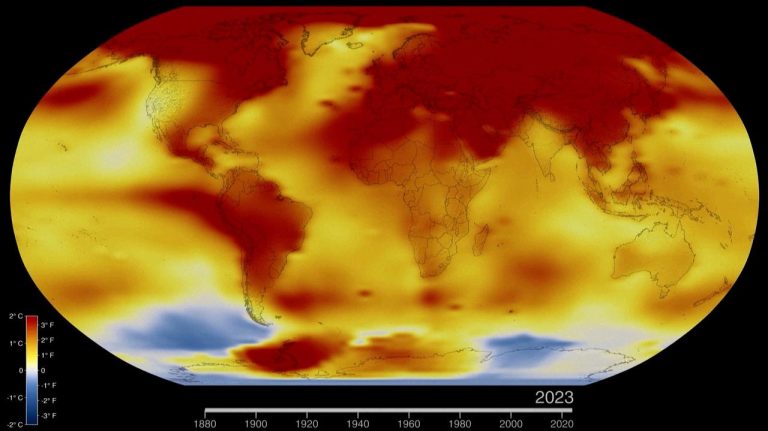In January, we said that 2023 was the hottest year on record, and we'll probably be saying the same about the year that's slowly coming to an end. According to the World Meteorological Organization, everything indicates that another record will be broken. Experts emphasize that our planet has not been so hot for more than a hundred thousand years. The trend of global temperature increase can be seen in NASA visualization.
The World Meteorological Organization (WMO) said on Thursday that 2024 will be the hottest year on record, with the Earth's average global temperature expected to be higher than last year. As the Secretary General of the United Nations Antonio Guterres emphasized, such conclusions can be reached about two months before the end of the year.
– Climate catastrophe is our reality and we cannot reach it. Humanity is setting the planet on fire and paying the price, said the UN chief.
The organization analyzed the average global temperature from January to September this year ahead of the upcoming COP29 climate conference. This meeting will be held on November 11-22 in Baku, Azerbaijan.
In 2023, the average temperature of the world was 14.98 degrees, which broke the record of seven years ago. In addition, last year was 1.48 degrees Celsius warmer than pre-industrial levels (1850-1900), and for the first time in history, the average daily temperature was one degree above the period average every day of the year. At the end of October, the World Health Organization announced that last year the emission of greenhouse gases, which cause an increase in the global temperature, reached a record level.
NASA has released a visualization showing the temperature anomalies on Earth from 1880-2023. Red color indicates higher than average temperature, blue color indicates lower temperature, and places where the temperature did not deviate from the average are marked in white color. Over the past 143 years, the greatest increase has been seen in the Northern Hemisphere, South America, and parts of Antarctica. Temperatures are rising at the fastest rate since the beginning of this century.
Visualization showing the increase in Earth's average temperature from 1880 to 2023 Reuters/NASA Scientific Visualization
Our planet hasn't been this warm in 120,000 years, according to early climate data obtained from ice sheets and tree rings.
Main image source: Reuters/NASA Science Visualization

